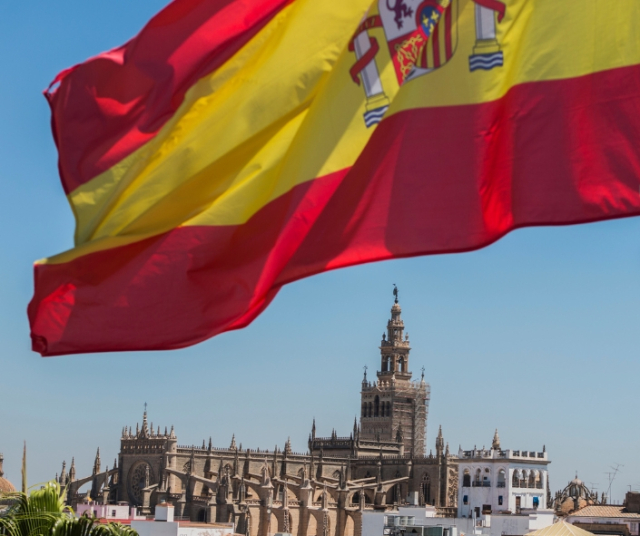The month of March in Spain is a vibrant period full of festivities that reflect the rich cultural diversity and deep-rooted traditions that characterize this country.
Holy Week: A Deep Religious Celebration
Holy Week in Spain not only represents a series of religious events; It is an immersive experience that immerses entire communities in deep spiritual reflection and a living expression of their beliefs. This celebration, which takes place during the last week of March or early April, marks the culminating period of Lent, where the faithful dedicate themselves to prayer, penance and reflection in preparation for the celebration of the Resurrection of Jesus Christ.
The Holy Week processions are the epicenter of this celebration, and every city and town in Spain embraces them with fervor. Brotherhoods and brotherhoods parade through the streets, carrying with them imposing religious steps that represent biblical scenes of the Passion and Death of Christ. These steps, often of incalculable artistic and historical value, are carried on the shoulders of the brothers, wearing traditional tunics that vary depending on the region.
The atmosphere during the processions is unique: the smell of incense permeates the air, the bells ring and the devotees follow the images with reverence, performing prayers and chants that resonate in the narrow cobblestone streets. Holy Week is not only a religious event; It is a cultural manifestation that fuses the sacred and the profane, the artistic and the spiritual.
Each region in Spain gives its own character to the processions, creating significant variations in the way Holy Week is experienced. In Seville, the city is transformed into a scene of grandeur and solemnity. The images of the Virgin and Christ, venerated for centuries, move through narrow streets, witnesses of a devotion that transcends generations. The massive community participation reflects the deep emotional connection people feel with these sacred representations.
Valencia Fallas: Ephemeral Art and Fire
The Fallas of Valencia constitute a cultural and artistic phenomenon that transforms the city into a vibrant and effervescent scene during the month of March. This celebration, which combines artistic creativity with the spectacular nature of fire, has become one of the most emblematic and anticipated festivities in all of Spain.
The origin of the Fallas dates back to the traditions of carpenters, who, before the arrival of spring, burned the remains of their tools and wood waste in public bonfires. Over time, this practice evolved into the creation of ephemeral artistic monuments, known as "ninots", depicting satirical and humorous figures.
The epicenter of the Fallas is the creation and exhibition of these ninots, which become the focus of the competition for the best falla. These sculptures, crafted with meticulousness and detail, satirize aspects of society, politics or popular culture. Local artists put months of work into creating these masterpieces, which often reach impressive heights.
Saint Joseph's Day: Family Celebration and Tradition
On March 19, Spain dresses up to commemorate Saint Joseph's Day, a holiday that goes beyond simply being a religious commemoration, becoming a day dedicated to family, tradition and unity.
Saint Joseph, considered the earthly father of Jesus, is venerated on this date as a symbol of fatherhood, humility and honest work. The holiday not only pays tribute to this saint, but also celebrates all fathers, becoming a special occasion to honor the paternal figure in all its forms.
The celebration of Saint Joseph's Day involves a unique mix of religious and cultural aspects that highlight the importance of family in Spanish society. Churches host special masses dedicated to Saint Joseph, where the faithful gather to participate in prayers and reflections focused on the figure of the saint. However, the festival extends far beyond the walls of the temples, reaching every corner of society.
In many homes, St. Joseph's Day is an occasion to gather around the table and share a family feast. Gastronomy plays a prominent role, with typical dishes associated with this festivity, such as "monas" (decorative cakes) and "torrijas" (slices of bread soaked in milk and egg, fried and sweetened), which become authentic delicacies. traditional.
Tradition is also manifested in the specific activities that characterize this day. In some regions, parades and community events are held that reinforce the sense of belonging and connection between neighbors. In Valencia, for example, Saint Joseph's Day is associated with the "Mascletà", a pyrotechnic show that fills the sky with thunderous sounds and colors, capturing the attention and admiration of large crowds.
Amid music, dance, parades and culinary traditions, the March festivities connect Spaniards with their past and strengthen community ties that have endured throughout the centuries.
